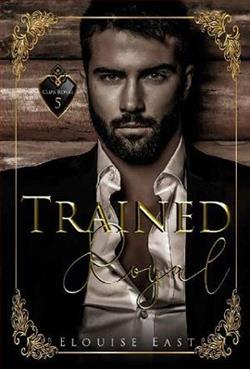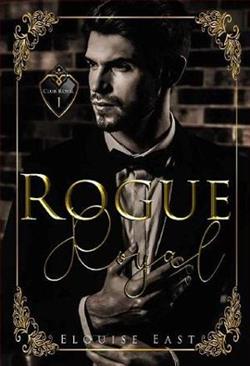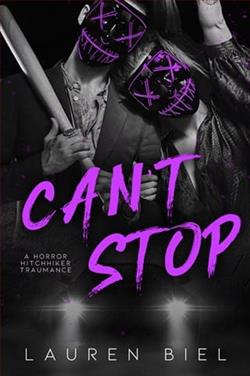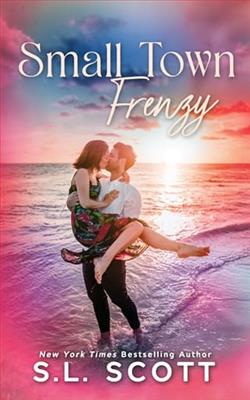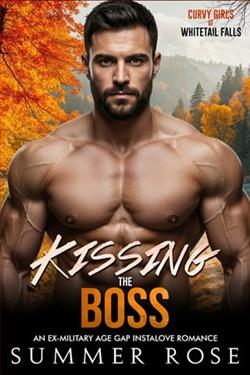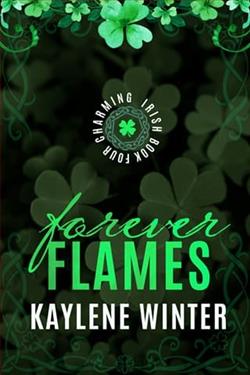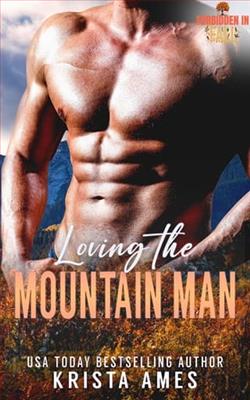Page 93 of Tell Me You Love Me
“Alana!” Fox booms from downstairs, pounding her fists on the wall. “Alana Page! Ass down here, now!”
“God…” Alana pushes dizzily to her feet, swaying dangerously to the side until I stand and hold her arm, but she brushes me off and stumbles to the sink, turning on the tap and folding at the hips to drink from her cupped hands.
She chugs enough water to give her something to bring back up again in ten minutes, then she washes her face and rubs her eyes.
“Alana!”
“I’m coming!” She slaps the tap off and dries her face with a differenttowel, then she stalks out the door, slamming her shoulder to the frame on the way past.
Frustrated, I hurry behind and scoop her arm with mine before she tumbles down the damn stairs. “You should’ve had breakfast, Lana. Attending a funeral and dealing with all those people on an empty stomach was never gonna be a good idea.”
“I wasn’t hungry.” She wipes her cheeks with the heels of her palms, drawing a long, shuddering breath into her hitching chest and swallowing to wet her dry throat. Then she frees her arm from mine—adding just another lash to my heart—before striding into the living room and skidding to a violent stop when her name flashes on the television screen.
A talk show. A stack of books placed between the hosts. And a woman sitting on the end, gushing about the novel titled ‘Love and War’ and its summer release date.
“No.” Alana’s cheeks drain whiter than they’ve been all day, her eyes glued to the screen and unflinching, even as Ollie and Eliza stride into the room.
“Alana is so sorry she can’t be here today.” Helen—her name slides across the bottom of the screen—is a woman sitting somewhere on the other side of fifty-five, with midnight black hair and bright red lipstick slathered over thin lips. She lovingly hugs a copy of the novel, stroking the cover the way she might an infant’s cheeks. “Her mother passed recently, and today was the funeral.”
“Oh, that’s so sad.” The female host—Tanya—long ago perfected her television eyes and the way they glitter with emotion. She brings a hand over her heart as though to drive home how falsely sympathetic she is. “That’s devastating news. We’re so thankful you could make it, considering the circumstances. As her agent, it’s your duty to step in during these difficult moments, right?”
“As her agent,” Helen agrees. “And as her friend. I think you’ll find, once you read this book, you’ll understand a young woman’s journey and the amazing strength she holds within her heart. You’ll grieve for her, just as I do. And celebrate her, the way those of us who love her do. Alana proves, with her writing and in how she lives, just how far inner peace and perseverance can carry you.”
“No, please.” Alana stumbles toward the back of the couch, setting her hands on the frame and searching the room, almost in a daze. Oliver and Eliza. Chris and Fox. “W-where’s Franky?”
“He’s outside with Caroline.” Chris folds his arms and glances back tothe television. “She drove in after us and said he could stay out there with her and her kids for a bit.”
“Of course, we wish Alana could be here herself,” the male host murmurs. “But we understand this is a difficult day and should absolutely be spent with her loved ones. In the meantime, Helen, we’d love to hear your take on the story so special that Elyte would not only go to auction to secure the rights, but that they would increase their offerstwicemore. That’s unheard of, isn’t it?”
Whimpering, Alana drops into a crouch and rests her elbows on the back of the sofa. “Please don’t do it.”
“Of course!” Helen sets the book on her lap. “Love and War is a story written in the first person point of view, from the female lead’s perspective only. It’s a coming-of-age tale, spanning the protagonist’s early years and the love she shared with her male best friend all through their school years. There was an inciting incident during the time surrounding graduation which changed the trajectory of what she thought her life would look like, and soon after that, we’re taken on a tour of sorrow and loneliness. Marrying another man and giving birth to a beautiful baby boy. Alana has, in my humble opinion, encapsulated the raw and honest reality of a life plan changed by someone else’s villainous actions.”
“Make it stop.” Alana trembles. Her hands shake, and her jaw quivers. Her entire being vibrates with a desperate devastation that propels me forward. I pull her to her feet and draw her around, pressing her cheek to my chest in the hopes I could give her a moment of reprieve. But she bounces back again, bucking free of my embrace and slamming into the back of the couch.
“Lana—”
“No. You can’t… We….” She knuckles the tears from her eyes and brushes my hand away. “Tommy…”
“What do you need?” I snag her wrists and force her to stay put. “Alana? What do you want from me?”
“I want you to leave.” She exhales a shuddering breath and swings her gaze to Chris. “Both of you. I need you to go. Turn the TV off and don’t?—”
“You speak of tragedy,” Tanya continues. “But when I consider books and tragedy, I think of Romeo and Juliet. Cleopatra and Mark Antony. Death, perhaps, for one of the main leads. Is this what you mean?”
“Tommy?” Alana grabs my face, forcing my eyes down to hers. “I’ll give youanything. I’ll be with you forever. I’ll marry you if you want or leaveyou alone if that’s what you’d prefer. I’ll be anything you want me to be. But you need to go now. Please,” she chokes out. “Don’t watch this.”
“In the case ofthisstory,” Helen pushes on, “the tragedy is in a young woman’s stolen innocence. It’s in the loss of her autonomy and, ultimately, not having a voice when she needed it most.”
“Tommy, please,” she weeps. “Please stop.”
“Without giving too much away, I could say that, on the night of their prom, these minors had made a poor choice and consumed alcohol. Which,” she adds happily, “despite the law, we know is apt to happen. The female lead’s home life wasn’t wonderful, and turning up with alcohol on her breath was not something she felt comfortable doing. So she and the main male lead went to his not-so-great home instead.Hehad been responsible, choosing not to drink so he could keep his friends safe, but after arriving home and falling into bed to rest, he received word of a friend in need. A hero is not a hero unless his protective instincts spread far and wide.”
The heavy slick of nausea coats my stomach as I cast my eyes to a horrified Oliver. And beside him, Eliza and the tears in her eyes.
“While the hero was away, having left our heroine safely asleep in his bed—or at least, safety was reasonably assumed—she awoke to the hero’s father… well…”
Helen hesitates, as though her marketing schtick makes her almost as sick as it makes me to hear. “He did things to her that the heroine spends the rest of the book running from. This is how she ended up with a son: flowers growing after a rainstorm, so to speak.”








